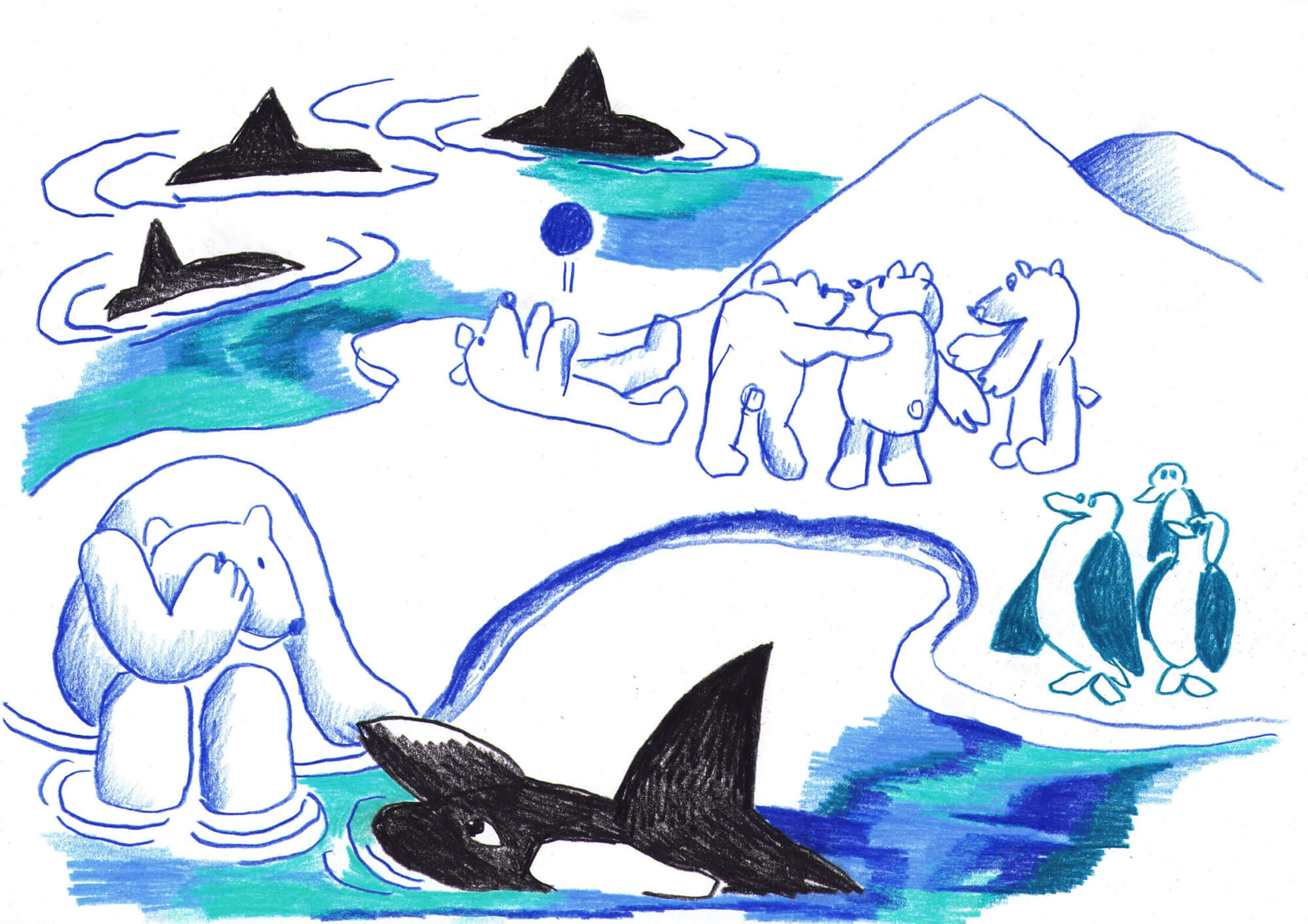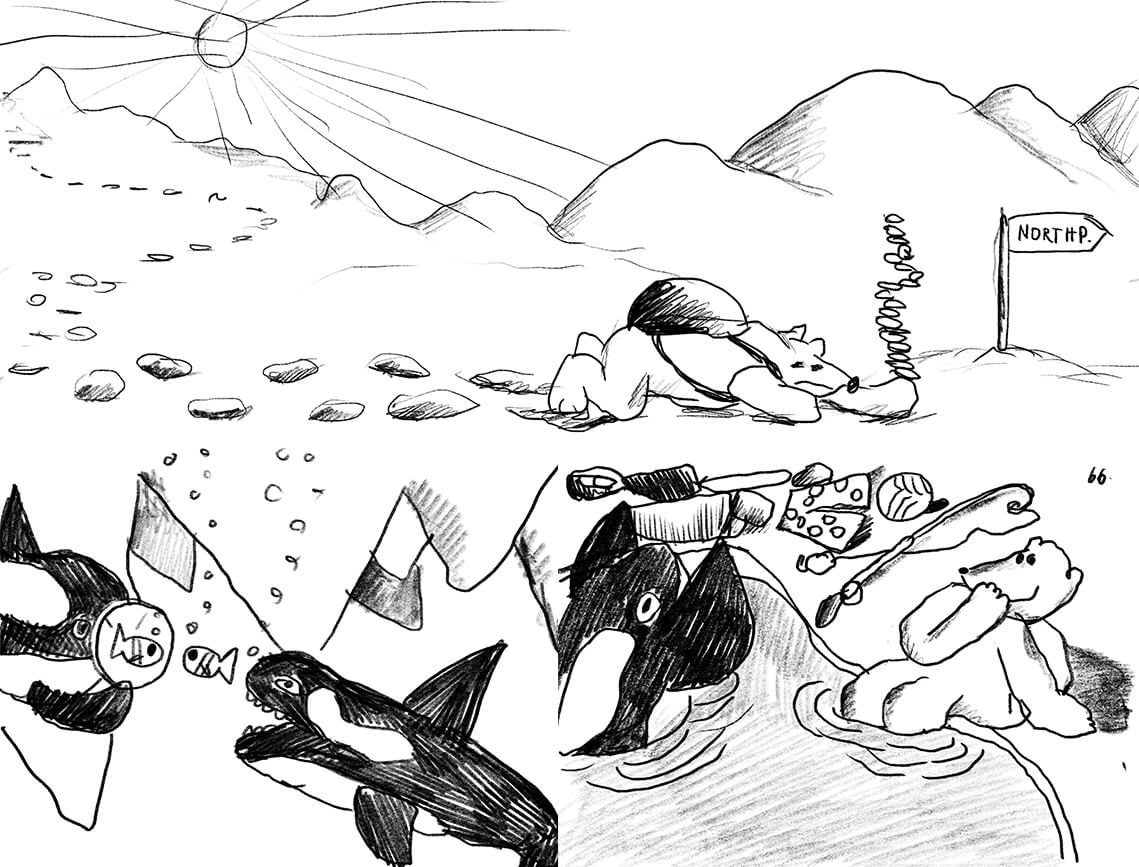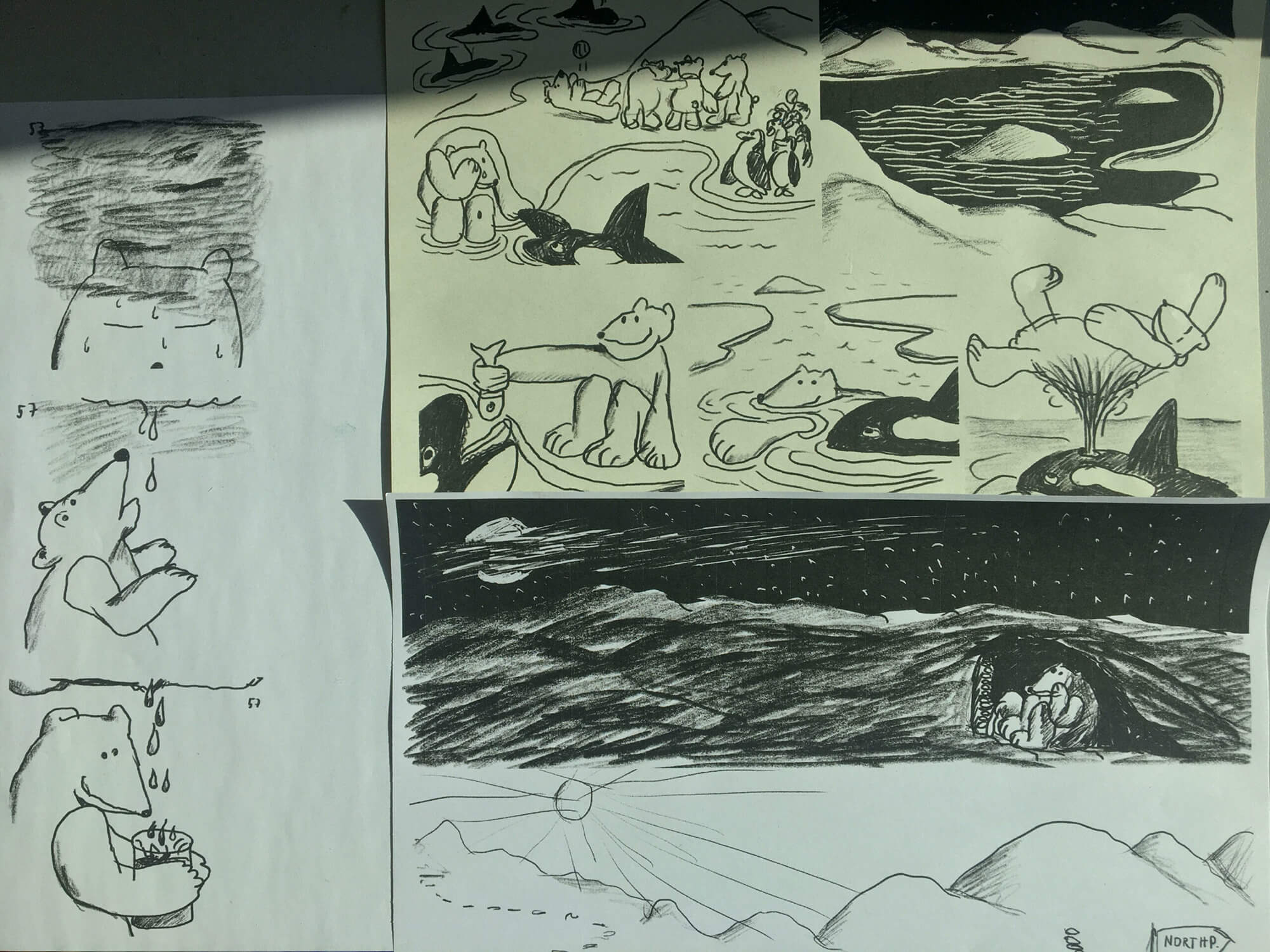The systemic problem of obsolescence
In the wake of the Ocean Decade, the scientific community is faced with a conundrum; how to encourage large-scale societal mobilization, political and economic action to value, protect, restore and enhance the ocean’s essential goods and services, when the general public is emotionally disconnected from it?
The “out of sight, out of mind” public view of marine ecosystems has been encouraging modern society’s emphasis on the capitalization of successive thinking over a coexisting one (i.e., the new “correct” answer must kill the old one).The capitalization of this mindset encourages and normalizes obsolescence; everything and everyone is replaceable from single-use objects and marine plastic pollution to ecosystems and ocean drilling.
But it doesn’t have to be this way! Discussing the new politics for the current age of crisis, the environmental and political activist, George Monbiot emphasizes “using common riches to fund universal benefits to provide everyone with security and resilience” [1]. A kinder world that stimulates and normalizes our kinder values, would be one that empowers resilient and future-ready kids who think creatively to solve global challenges. In creating an educational children’s book that combines reading and playing, our plan is to bridge the general public emotional gap from the ocean by fostering ocean literacy for the new generation of change-makers heroes.
“The Adventures of Poli & Orci”: advocating for an inspiring & engaging ocean
“The Adventures of Poli & Orci” is a multi-layered, edu-taining children’s book intertwining graphic, instructional, and narrative design together with elements of ocean literacy and interpersonal skills, to shed light on better practices of informal learning techniques for 21-century kids (from 6-10 years old).

The book’s central theme is inspired by the Japanese art of Kintsugi of mending broken pottery by filling the breakages with golden or silver lacquer —a metaphor for embracing imperfection. Accordingly, in the book’s mythologized world when an animal is hurt, its heart literally breaks into pieces, which then can symbolically be mend together, through a magical, self-reflective process. “When life becomes too scary, it is of paramount importance coming in terms with the fact that it can be rare to find inner peace, that it’s very unusual for our life to be fulfilling or morally uplifting, or for that matter uncracked or infinitely new,” believes Elli Palaiothodorou, the project’s psychological mapping advisor.
In conceptualizing, researching, and developing this interactive book we will weave fantastical narrative allegories, like the Kintsugi-inspired one, together with current oceanic and climatic challenges, resulting ina humoristic, surreal and clever approach to inspire connection with “the ocean we want (and desperately need)”. Ultimately, as the young audience engages with the main characters’ adventures, both on a macro and micro level, they learn about perspective taking, self-reflection, and resilience to make science-based decisions. We hope that the tender and rooted in honesty story of Poli and Orci will provide a deeper, emotional affinity with our blue planet.
The project’s aspirations wouldn’t be possible without our young team’s transdisciplinary approach; as we have expertise in marine science, psychology, and education, as well as animation and design.

A two-pronged approach to game-based narrative learning
We will integrate narrative-based learning and social science insights: i) transformative learning; through ii) pretend-play elements, to promote holistic and behavior modifications that contribute to the kids’ emotional intellect.
Transformative learning uses “disorienting dilemmas”[2] to shake up a kid’s belief system, nudging them to question what they believe in [3]. Through this procedure, kids are encouraged to experiment and reintegrate new perspectives of understanding the world. The book’s double-perspective narration (i.e., the story told from either Poli’s or Orci’s viewpoint),will trigger a perspective-taking process in kids, enabling them to relate, be surprised by, and most importantly to critically think about the moral dilemmas of each character and the environmental challenges they are facing.
Following, it has been shown that kids who engage with pretend play have a deeper understanding of what’s going on in other people’s minds [4] on why they think that someone acted in the way they did, or what they would do in their position. Apart from simply following the characters’ two perspectives, the book will integrate an additional storytelling layer in the form of a foldable interactive map. The map will contain thought activities connected to the book’s main narrative, for kids to self-reflect and “pretend play” on the topics of personal resilience, vulnerability, interpersonal skills and anthropogenic impact on the marine ecosystems.

On creating a visual narrative
And yet, the interactiveness of the book extends beyond its written words. We embrace kids’ playfulness and invite them to create their interpretations of the book’s different abstract themes. “We want to play with a mix of monochrome drawings and multicolor scenes. This helps, on one hand, to guide through the story and its different atmospheres and emotional layers, and on another hand, it makes the reading for the kids exciting and keeps a lot of surprises.” reflects Moriz Oberberger, the book’s illustrator and graphic designer, on the book’s visual identity development.

On challenging oneself
This project’s seed was planted, in 2018, during a talk I gave at the University of Amsterdam on kin selection and altruism in nature. For me, iterating the book’s mythologized world in collaboration with trusted friends and colleagues is a chance to grow both as scientists and artists, deepen our understanding of what matters, and pay the privilege of our education forward by shedding light on better practices of informal learning techniques for kids.
Credits: Narrative/Instructional design: Despoina Kortesidou, Illustrator/graphic designer: Moriz Oberberger, Marine science advisor: Haris Paliogiannis, Psychology advisor: Elli Palaiothodorou, This project is funded by Creative Industries Fund NL.
List of References:
[1]: Monbiot, G. (2017). Out of the wreckage: A new politics for an age of crisis. Verso Books, p. 184.[2]: A disorienting dilemma is when the subject encounters something that doesn’t fit into their worldview and –through critical dialogue –rethinks their previously held beliefs.[3]: Kitchenham, A. (2008). The evolution of John Mezirow’s transformative learning theory. Journal of transformative education, 6 (2), 104-123.[4]: Gopnik, A., Glymour, C., Sobel, D. M., Schulz, L. E., Kushnir, T., & Danks, D. (2004). A theory of causal learning in children: causal maps and Bayes nets. Psychological review, 111 (1), 3.
This article is part of an online series dedicated to the UN Ocean Decade. One story will be published each week that is related to initiatives, new knowledge, partnerships, or innovative solutions that are relevant to the following seven Ocean Decade outcomes. Access the special digital issue dedicated to the Ocean Decade here.